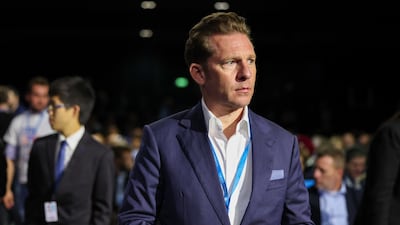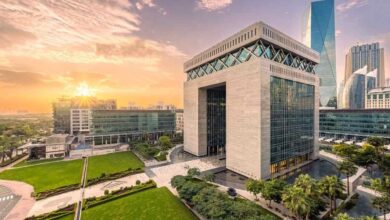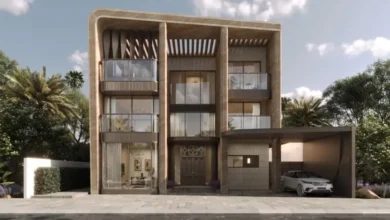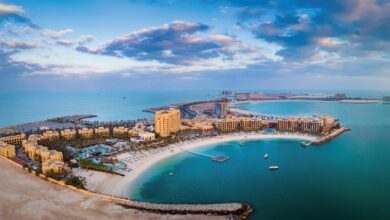
British billionaire Nick Candy has announced his company Candy Capital has struck a deal with Abu Dhabi-based property developer Modon Holding.
The newly established joint venture will focus on delivering a portfolio of “extraordinary real estate developments” spanning high-end residential, commercial and hospitality sectors, a statement read.
The deal will combine Candy Capital’s background in “ultra-luxury real estate” alongside Modon’s “operational capabilities and financial strength”, it added.
The partnership will initially focus on deals within the Middle East, with a view to expand globally in the future. Mr Candy said the agreement reflected a “shared long-term vision for growth, innovation and excellence in the ultra-luxury sector”.
“We look forward to creating iconic developments with Modon that will redefine luxury living on a global scale.”
One Hyde Park development – in pictures

Nicky Candy, one of Britain’s richest men, collaborated with his brother Christian on the development of One Hyde Park, a luxury apartment block in Knightsbridge, west London.
In 2021, the 51 year old listed his penthouse at the block for £175 million ($230 million), reportedly attracting interest from potential buyers in the Middle East.
Candy Capital has previously worked in the UAE, teaming up with Dubai World Trade Centre as part of a collaboration aimed at developing ultra-luxury real estate projects.
Jassem Al Zaabi, chairman of Modon Holding, said: “We are excited to announce our strategic partnership with Candy Capital. This collaboration marks another milestone for Modon, as we join forces with a leader in luxury real estate.”

In March, Modon Holding was created following the merger of Q Holding, Modon Properties and ADNEC, a move aimed at expanding its market presence in the UAE and internationally.
Abu Dhabi-based investment and holding company ADQ announced last week that Modon Holding would be master developer for a megaproject in the Egyptian coastal city of Ras Al Hekma. Investment in the development is expected to reach $150 billion, with Egypt securing a 35 per cent share of the project’s profits.





